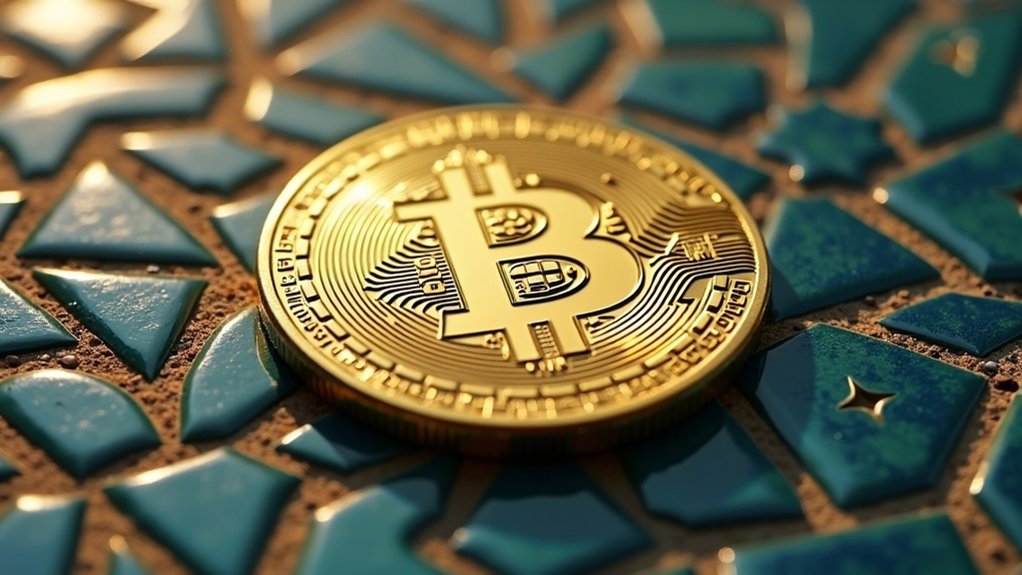A crypto hot wallet is a digital wallet that stays connected to the internet, allowing quick access to cryptocurrencies. It stores private keys online for fast transactions and syncs with blockchain networks in real-time. Hot wallets come as mobile apps, desktop software, or browser extensions with user-friendly interfaces. They’re perfect for everyday use and small trades. Not ideal for large amounts though—hackers love these constantly-online targets. The security-convenience tradeoff becomes clear once you understand the full picture.
A crypto hot wallet is exactly what it sounds like—hot. It’s constantly connected to the internet, ready to send and receive cryptocurrencies at a moment’s notice. These digital wallets store your private and public keys on internet-connected devices like your smartphone, computer, or browser. They’re the go-to option for anyone who needs quick access to their Bitcoin, Ethereum, or other crypto assets.
Hot wallets generate a seed phrase—that string of random words you’re told never to share—and keep your private keys online. This makes transactions fast. Really fast. Unlike their cold wallet counterparts, hot wallets sync with blockchain networks in real-time, showing your current balance without delay.
The convenience is undeniable. Access your crypto from anywhere with internet. Send funds instantly. Interact with decentralized applications. Most hot wallets feature user-friendly interfaces with QR code scanning capabilities that make sending and receiving crypto as simple as taking a selfie. Some even let you trade directly within the app. These wallets provide integrated trading functionalities for users who need to frequently exchange their cryptocurrencies. These self-custody solutions give users complete control over assets without relying on intermediaries.
But here’s the catch—and it’s a big one. Security. Hot wallets rely on software protections like passwords, two-factor authentication, and biometric verification. Still, they’re vulnerable. Being constantly online exposes them to hackers, phishing attacks, and malware. Your private keys are stored on an internet-connected device. Think about that.
Technically speaking, hot wallets sign transactions with your private key before broadcasting them to the blockchain. They connect directly to multiple blockchains, managing different tokens across various networks. Most can link to exchanges and DeFi applications for trading or staking.
These wallets come as mobile apps, desktop software, or browser extensions. They’re categorized as “software wallets” rather than hardware solutions. Many are open-source, others proprietary. Hot wallets can be either custodial or non-custodial, with the former having a third party manage your keys while the latter gives you complete control.
Hot wallets excel at everyday use—paying for coffee, sending funds to friends, or making small trades. They’re perfect for active traders and crypto beginners. Just don’t keep your life savings in one. That would be stupid.
Frequently Asked Questions
How Can I Secure My Hot Wallet Against Hacking Attempts?
Hot wallet security demands vigilance.
Users should enable two-factor authentication, no exceptions. Keep software updated—hackers love outdated code. Strong, unique passwords are non-negotiable.
Public Wi-Fi? Terrible idea. Use cold storage for large amounts—hot wallets aren’t Fort Knox. Hardware security keys add serious protection.
Never share private keys or seed phrases. Period. Regular security scans catch malware before it catches you.
Phishing attempts are everywhere. Trust nothing, verify everything.
What Fees Are Associated With Using a Hot Wallet?
Hot wallets don’t charge fees themselves – it’s the blockchain networks that get you. Each cryptocurrency has its own fee structure.
Bitcoin charges based on transaction size, while Ethereum uses gas fees (base fee plus tip).
Network congestion? Fees skyrocket. Some wallet providers tack on service fees for maintenance.
And if you’re trading through linked exchanges, expect additional trading fees between 0.1-0.26%.
Different coins, different costs. Solana transactions? Dirt cheap. Bitcoin during high traffic? Not so much.
Can Hot Wallets Interact With Decentralized Finance (Defi) Platforms?
Yes, hot wallets excel at DeFi interaction.
They’re actually the primary gateway for most users. Connected to the internet, these wallets let users directly access lending protocols, decentralized exchanges, and yield farms without missing a beat. MetaMask, Trust Wallet, and others integrate seamlessly with DeFi apps.
The trade-off? Security risks. Being online makes them vulnerable to attacks.
Still, for active DeFi users, hot wallets are practically essential. Cold storage just can’t compete for real-time transactions.
How Do I Recover My Funds if I Forget My Password?
Forgetting a hot wallet password isn’t the end of the world.
It’s the seed phrase that matters. Users can simply restore their wallet using that backup seed phrase they (hopefully) stored somewhere safe.
No seed phrase? Then they’re probably screwed. Password resets don’t exist in most hot wallets because private keys are encrypted locally.
The brutal truth: without seed phrase or private key backups, those funds might be gone forever. Tough luck.
What Are the Tax Implications of Transactions Through Hot Wallets?
Transactions through hot wallets trigger tax events. Period.
Each sale, trade, or purchase using crypto must be reported to tax authorities. Cost basis tracking is essential—forget it at your peril.
Transfers between your own wallets? Generally not taxable. But convert one token to another? Taxable.
Airdrops and staking rewards count as ordinary income. The IRS isn’t joking around with crypto these days.
Detailed records are non-negotiable.









